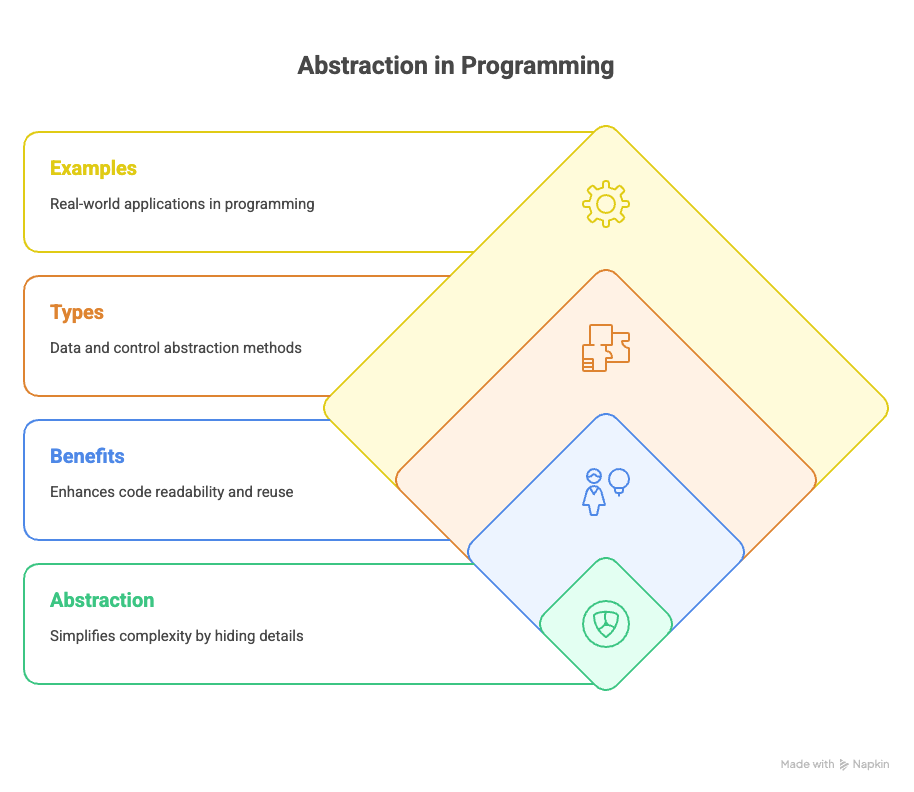Abstraction in programming means focusing on what something does instead of how it works. It’s a way to manage complexity by hiding unnecessary details and showing only the parts you need to use. This concept helps programmers build clean, organized, and more understandable code.
Imagine you’re using a smartphone. You tap an icon to open an app, but you don’t need to know how the phone’s software processes that tap or how the app launches. That’s abstraction at work. It hides the complicated stuff and lets you interact with a simple interface.
In programming, abstraction lets developers create systems that are easy to work with. You can build a function, class, or module that does something useful, without exposing the internal steps involved.
Why Is Abstraction Important?
Abstraction saves time and reduces errors. When you write code, you don’t want to repeat complex logic.
With abstraction, you can wrap that logic in a function or object and reuse it anywhere. This makes the code easier to maintain and update later.
It also helps with teamwork. If you’re working with others, abstraction lets you define clear boundaries. Each person can work on different program parts without knowing how the other parts work.
Types of Abstraction in Programming
There are mainly two kinds of abstraction:
1. Data Abstraction: Hides how data is stored or managed. For example, when you use a list in Python, you don’t need to know how it’s implemented under the hood.
2. Control Abstraction: Hides the flow of control. Functions, loops, and conditionals are examples. You use them to describe what should happen, not how each step is carried out internally.
Real-World Example
Let’s say you have a function called process_payment(). When someone calls this function, they don’t need to know whether it’s using a credit card API, checking a balance, or logging the transaction. All of that happens behind the scenes. The user just sees a simple action: payment is processed.
In Object-Oriented Programming
In object-oriented languages like Java or Python, abstraction is often done using abstract classes or interfaces. These define a structure or behavior without specifying the exact code. Subclasses then fill in the details.
To sum up, Abstraction helps programmers simplify complex systems by hiding unnecessary details. It improves code readability, encourages reuse, and speeds up and makes development more efficient.
« Back to Glossary Index
